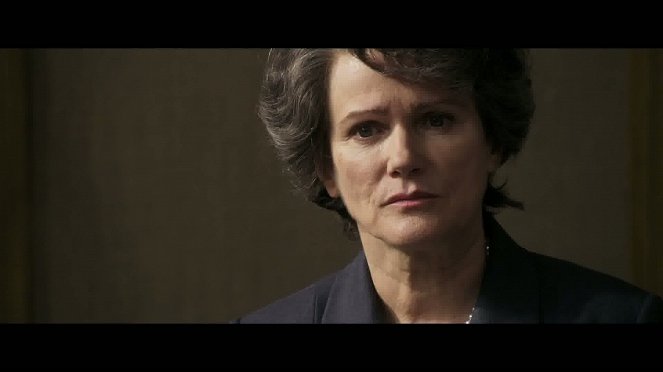Directed by:
Margarethe von TrottaCinematography:
Caroline ChampetierComposer:
André MergenthalerCast:
Barbara Sukowa, Axel Milberg, Leila Lallali, Janet McTeer, Julia Jentsch, Ulrich Noethen, Michael Degen, Victoria Trauttmansdorff, Nicholas Woodeson (more)VOD (1)
Plots(1)
Hannah Arendt is as compelling and polarising as its eponymous protagonist. Arendt, masterfully played by Barbara Sukowa, is sent by The New Yorkerto cover the trial of Adolf Eichmann in Jerusalem. The article generates a storm of criticism by the intellectual and Jewish communities, labelling her cold, heartless and a self-hating Jew. Von Trotta's vision of Arendt offers understanding into the formulation of her ideas - in particular what Arendt termed 'the banality of evil' - which later culminated in her seminal thesis of the same name. (Curious Films)
(more)Videos (2)
Reviews (3)
Hannah can be uncompromising and totally emotionless, but overall, she has one main goal – Adolf Eichmann who will probably keep her awake for the rest of her life. The director Margarethe von Trotta has fairly accurately shot the story of someone who wanted to destroy Eichmann in court. Live action scenes are complemented by real-life shots that can make your blood run cold at times. There are all sorts of people in the world and so I’m willing to believe that they can keep on surprising you throughout life. However, it’s a pity that the two hours of this movie dragged on quite a lot. I felt like the movie was trying to analyze Hanna and Adolf more than trying to tell a unique story. Even so, it’s a story about Nazi Germany that you need to know and watch.
()
She didn't consider herself a philosopher, yet she still thought philosophically. She was at the trial of Adolf Eichmann, the monster who was supposed to be the one to devise the final solution for dealing with the Jews. Hitler's engineer of genocide. But Arendt realized that she was not facing a monster, but a normal person. At least at first glance. That's not what people want to see. They want to see a monster, they want to see a chimera. Such a monster can't be like them. This is one of the reasons why Hannah Arendt did not have an easy life and why her views were not positively received. Even if she didn't defend the monster, they still looked down on her. The film has great visuals, but more importantly, it highlights a topic to ponder. The quality of the performance, which interestingly combines feature film with archival footage, is an interesting added value. However, the film itself does not bring that much extra and is similarly engineered as The Iron Lady.
()
Another meeting between Margarethe von Trotta and Barbara Sukowa (or Lola, Berlin Alexanderplatz). This time in a masterful dialogue about the nature of evil. The film focuses on the period in the early 1960s when Arendt was reporting for "The New Yorker" on "Eichmann in Jerusalem: a Report on the Banality of Evil."
()



Ads